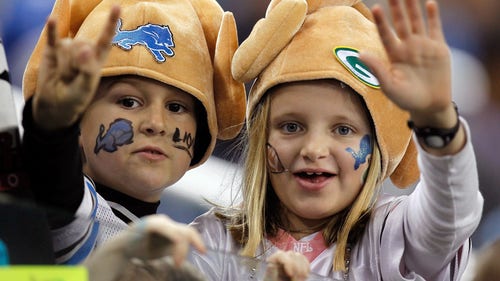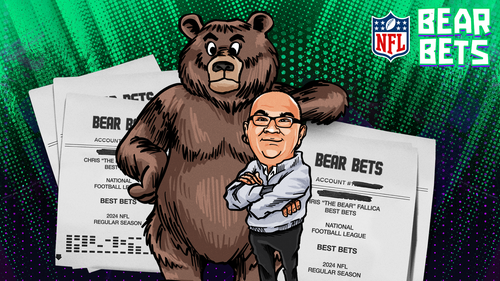
Onus on teams to look into prospects' character in draft
The pressure for the upcoming NFL draft is as much on team decision makers as it is on the players hoping to build a career in professional football.
While general managers will say they have always paid heed to a prospect's character and behavior, never before have those issues been such a focal point in the draft. And it starts right at the top with the Buccaneers and Jameis Winston.
The question marks hardly stop with Winston, who had been investigated for an alleged rape, walked out of a supermarket without paying for merchandise - crab legs, of all things - and exhibited immaturity often enough to raise some red flags.
Other top collegians whose conduct could jeopardize their standing in the draft that begins Thursday night in Chicago include Missouri receiver Dorial Green-Beckham, Nebraska linebacker Randy Gregory, Washington cornerback Marcus Peters, Florida State cornerback P.J. Williams, and Michigan DE Frank Clark.
Indeed, this group is peppered with players who have had run-ins with coaches, school officials, teammates, fellow students and the law.
So when Tampa Bay opens the proceedings, how many background checks will it have done into Winston?
Plenty.
''I've been around some picks where we have done almost as much work,'' Bucs general manager Jason Licht says.
Is the need to do that unsettling?
''I don't want to say unsettling. Sometimes you find out more and more good as you go,'' he adds. ''So, it's not unsettling that we are doing this much. It's actually comforting that we are putting as much work into it as we are.''
It has become necessary not just because so much is at stake with high draft picks, or because several prospects made the wrong kind of headlines in school. The headlines made by Ray Rice, Adrian Peterson, Greg Hardy and Jonathan Dwyer, all a part of the NFL when they ran into trouble, make it essential.
''I think teams always have emphasized that in the draft process, they get good background info,'' says Bill Polian, who built the Bills, Panthers and Colts into Super Bowl teams and now is an analyst for ESPN and SiriusXM NFL Radio.
''I think the fact that the league office has been so public and has been quite forthright in terms of discipline will give clubs some pause. So if there is a chance that a player could come into the league and have some difficulty, you are going to think twice about him and think twice about where you might draft him or if you draft him at all.''
Sometimes a player's indiscretions are isolated or aren't that much different from what college students everywhere are doing. Teams must weigh that possibility, too.
''The thing you have to think about ... is that they are young. They do young kids stuff,'' Giants general manager Jerry Reese said. ''You can't just absolutely kill them. You wouldn't have anyone to draft. Kids do kid things and do college things and it happens.
''If a guy has a long list of issues, that is when you have to throw the red flag in there. Is this guy going to stop? If you have a couple things that college kids do, you can't just throw it away.''
Without examining the litany of trouble some prospects have gotten into, suffice it to say that in today's social media environment, nothing will escape scrutiny.
No NFL team will rely on Twitter or Facebook accounts of such incidents, of course. But all 32 teams know they need to be extra diligent this year in their research, and more precise in their evaluations of player personalities.
Were Peters' run-ins with coaches at Washington a sign he can't handle instruction or discipline, or a matter of allowing his temper to get the best of him? Peters has the talent to go in the first round, and might have in other years. But in 2015 ...
''We want to get as much exposure to those players as possible,'' Eagles vice president of player personnel Ed Marynowitz said. ''The combine affords us a small window to do that. There is a 15-minute formal interview period that we'll visit with those guys there. Guys that we have additional questions on, we have an opportunity to bring 30 players to Philadelphia for the top 30 visits. We go out and see those players.
''So we do our due diligence with every player. What we're looking for, and I'll use the term a lot ... we want guys that are wired the right way. So an old (Bill) Parcells saying is, `When the best players are your best people is really when you have something that's going.' That is the type of culture that we want.''
But how does any team really know what it is getting?
Through interviews, private workouts, pro days - every segment of scouting. And still, as Marynowitz notes, ''You can only know to a certain degree, but we try to do our due diligence on every player to make sure if we bring a guy in that there are no surprises.''
Yet there are surprises. Rice generally was considered a good citizen with no demons until that night in an Atlantic City casino when he hit his then-fiancee.
Ozzie Newsome, the man who drafted Rice for the Baltimore Ravens, recognizes that his franchise will be in the spotlight as much for the character of the players it selects this year as for their talent. The Ravens had one 2014 draft pick, running back Lorenzo Taliaferro, arrested and charged with public intoxication and destruction of property two weeks after he was selected.
''I would hope that wouldn't happen again, but we will do any and everything that we can to make sure the 10, 11 or six, seven or eight players who we bring into Baltimore will hopefully stay out of trouble,'' Newsome says. ''And we'll probably do the extra work on that. But there's not a guarantee that it's going to happen. It's just impossible for us to guarantee that.''
---
AP NFL website: www.pro32.ap.org and www.twitter.com/AP-NFL










